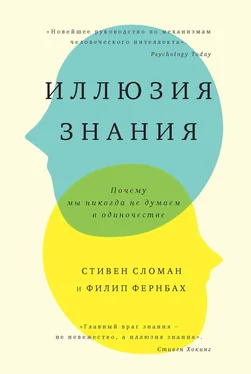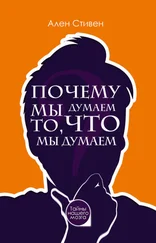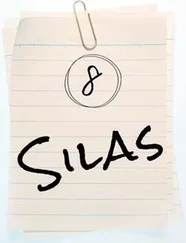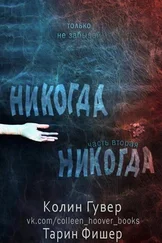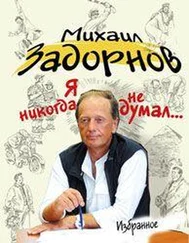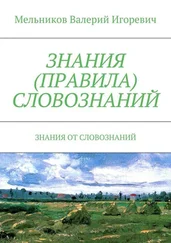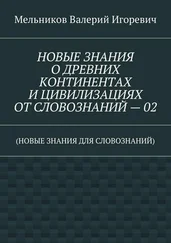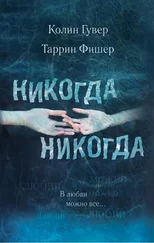170. …один из лучших предикторов… I. J. Deary (2001). Human Intelligence Differences: A Recent History // Trends in Cognitive Sciences. 5 (3): 127–130.
171. …данные 127 исследований… N. R. Kuncel, S. A. Hezlett and D. S. Ones (2004). “Academic Performance, Career Potential, Creativity and Job Performance: Can One Construct Predict Them All?” Journal of Personality and Social Psychology. 86 (1): 148–161.
172. …процесса, используемого игроками… S. J. Ceci and J. K. Liker (1986). A Day at the Races: A Study of IQ, Expertise, and Cognitive Complexity // Journal of Experimental Psychology: General. 115 (3): 255–266.
173. …предложила профессор Анита Вулли… A . W. Woolley, C. F. Chabris, A. Pentland, N. Hashmi and T. W. Malone (2010).Evidence for a Collective Intelligence Factor in the Performance of Human Groups // Science. 330 (6004): 686–688.
174. …что именно измеряет показатель c… J. Salminen (2012). Collective Intelligence in Humans: A Literature Review // arxiv.org/pdf/1204.3401.pdf.
175. Вот что говорит… Эвин Рейберу … www.theguardian.com/media-network/media-network-blog/2014/jun/05/good-ideas-overrated-investor-entrepreneur.
176. …отсутствует корпоративный дух… www.paulgraham.com/startupmistakes.html.
11. Как сделать людей разумными
177. В 1980-х гг. в жизни бразильских городов… www.inflation.eu/inflation-rates/brazil/historic-inflation/cpi-inf lation-brazil.aspx.
178. …выполнить серию числовых и арифметических тестов. G. B. Saxe (1988). The Mathematics of Child Street Vendors // Child Development. 59 (5): 1415–1425.
179. «Необходимо предоставлять детям краткие промежутки времени для спокойных размышлений…» Оригинал цитаты см.: J. Dewey (1938). Education and Experience. N. Y.: Macmillan, 63.
180. …учащиеся не знают заранее, как именно они будут использовать навыки… Интересную дискуссию см.: D. Perkins (1995). Smart Schools: Better Thinking and Learning for Every Child. N. Y.: The Free Press.
181. Иллюзия понимания … W. Epstein, A. M. Glenberg and M. M. Bradley (1984). Coactivation and Comprehension: Contribution of Text Variables to the Illusion of Knowing // Memory & Cognition. 12 (4): 355–360; A. M. Glenberg, A. C. Wilkinson and W. Epstein (1982). The Illusion of Knowing: Failure in the Self-Assessment of Comprehension // Memory & Cognition. 10 (6): 597–602.
182. …перевернутый текст… P. A. Kolers (1976). Reading a Year Later // Journal of Experimental Psychology: Human Learning and Memory. 2 (5): 554–565.
183. …подпевают Джимми Хендриксу … М ного других примеров приведено на сайте www.kissthisguy.com.
184. …великий Джон Дьюи. Dewey , Education and Experience, 56.
185. …избегать ошибочной уверенности… Мнения философов Рома Харре и Джона Хардвига, а также теоретиков образования Стивена Норриса, Дэвида Перкинса и Нейла Постмена. См., например: S. Norris (1995). Learning to Live with Scientific Expertise: Toward a Theory of Intellectual Communalism for Guiding Science Teaching // Science Education. 79 (2): 201–217.
186. …преподается курс «Незнание». S. Firestein (2012). Ignorance.N. Y.: Oxford University Press.
187. Национальный совет США по социальным исследованиям… National Curriculum Standards for Social Studies: A Framework for Teaching, Learning and Assessment. National Council for the Social Studies, 2010.
188. Национальный совет США по исследованиям (NRC)… National Research Council (1996). National Science Education Standards.Washington, D. C.: National Academies Press; H. A. Schweingruber, R. A. Duschl and A. W. Shouse, ed. (2007). Taking Science to School: Learning and Teaching Science in Grades K-8.Washington, D. C.: National Academies Press.
189. …пропагандирует философию обучения науке… N. G. Lederman (2007). Nature of Science: Past, Present, and Future // Ed. S. K. Abell and N. G. Lederman . Handbook of Research on Science Education.N. Y.: Routledge. 831–879.
190. …«природа науки»… B. Alberts (2009). Redefining Science Education // Science. 323 (5913): 437. Прямое подтверждение этого мнения: из исследования тестов и экзаменов, используемых в различных вводных курсах биологии на уровне колледжа, было сделано заключение, что «во вводных курсах биологии больше внимания уделяется фактам, нежели их осмыслению на более высоком уровне». J. L. Momsen, T. M. Long, S. A. Wyse and D. Ebert-May (2010). Just the Facts?Introductory Undergraduate Biology Courses Focus on Low-Level Cognitive Skills // CBE Life Sciences Education. 9 (4): 435–440.
191. По мнению теоретика образования Дэвида Перкинса… Perkins , Smart Schools, 33.
192. … опираются на чей-то научный авторитет… Философы называют это эпистемической зависимостью.
193. Среднее число авторов на одну статью с 1950 по 2014 г. выросло почти в четыре раза… U. S. National Library of Medicine. www.nlm.nih.gov/bsd/authors1.html.
194. …поверить самому себе. Это еще один пункт, на который особо обращает внимание Стивен Норрис: Norris (1995): 211.
195. …в «яркую индивидуальность» (person-solo)… Термин используется Perkins , Smart Schools, 132, для подтверждения полезности участия в социализированном обучении с распределением умственного труда в группе.
196. …постигали мир интерактивно… Подтверждение этой точки зрения см.: R. Pea (1993). Practices of Distributed Intelligence and Designs for Education // In ed. G. Salomon, Distributed Cognitions: Psychological and Educational Considerations. N. Y.: Cambridge University Press. 47–87.
197. «Опыт экспертов распространяется сознательно…» Оригинал цитаты см.: A. L. Brown (1997). Transforming Schools into Communities of Thinking and Learning AboutSerious Matters // American Psychologist. 52 (4): 399–413.
198. …большего разнообразия классных занятий. A. L. Brown and J . C. Campione (1994). Guided Discovery in a Community of Learners // In ed. Kate McGilly, Classroom Lessons: Integrating Cognitive Theory and Classroom Practice. Cambridge, MA: MIT Press. 229–270.
Читать дальше
Конец ознакомительного отрывка
Купить книгу
